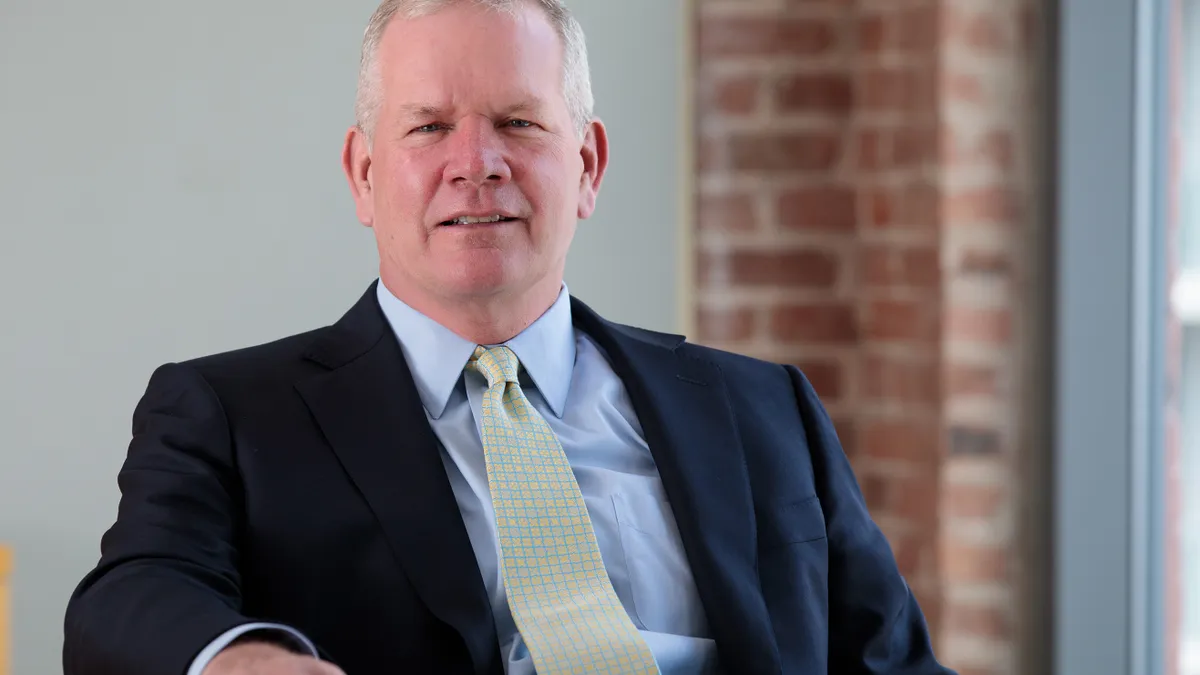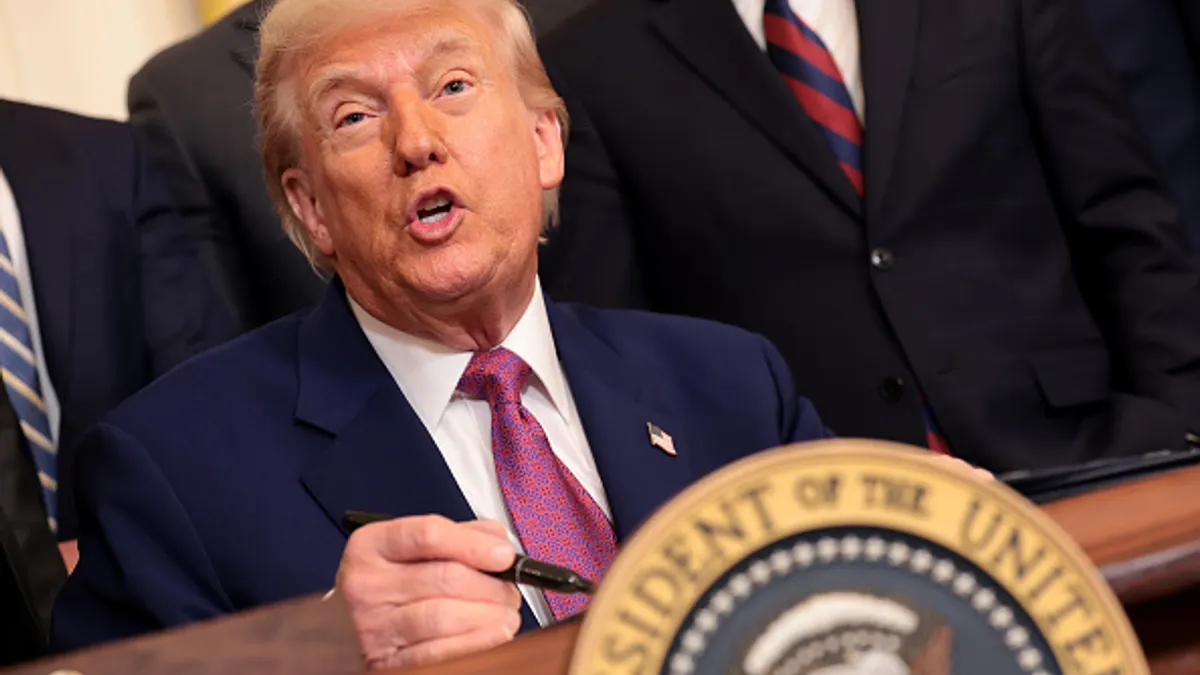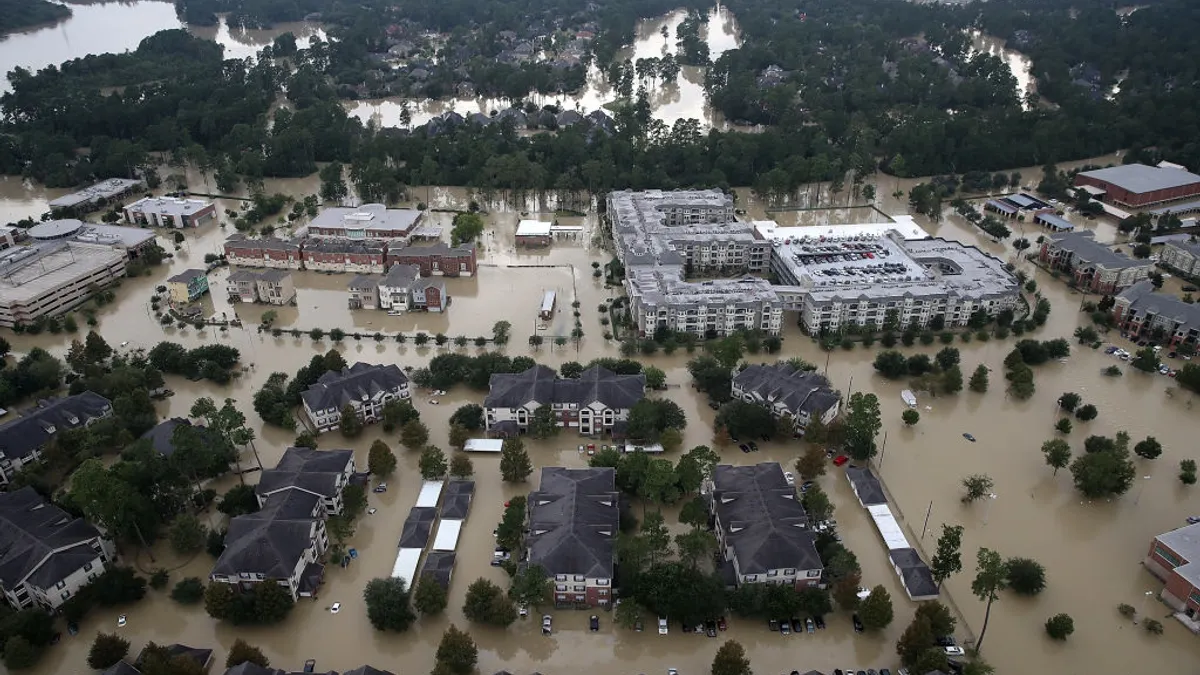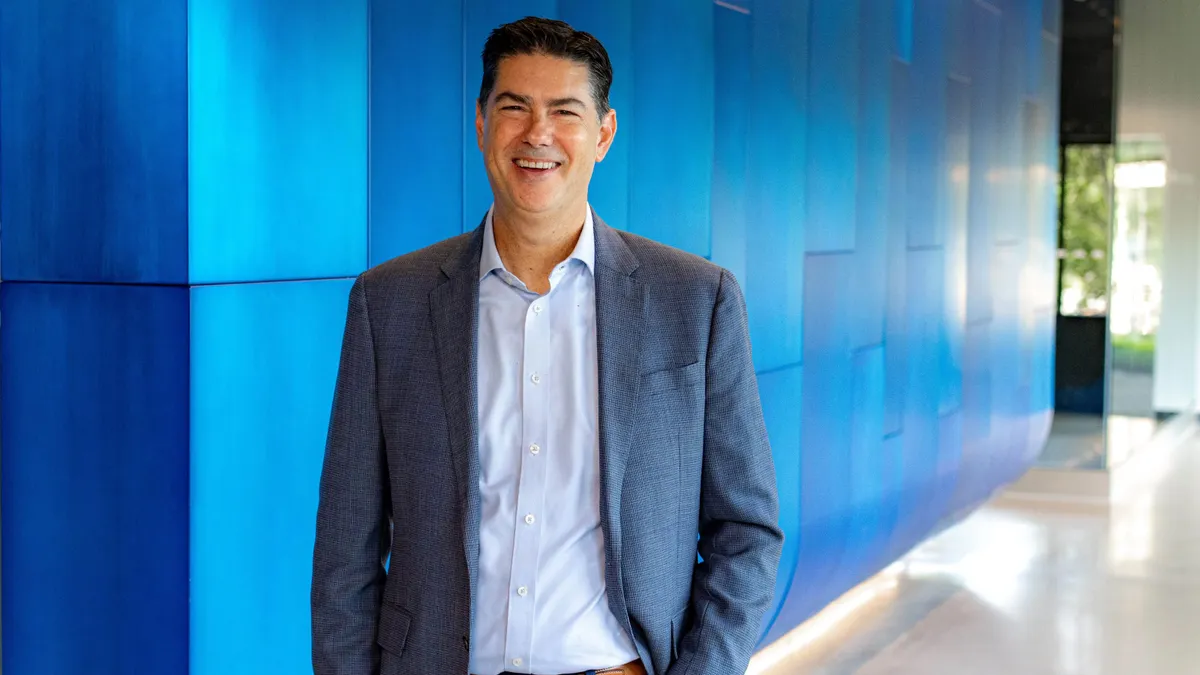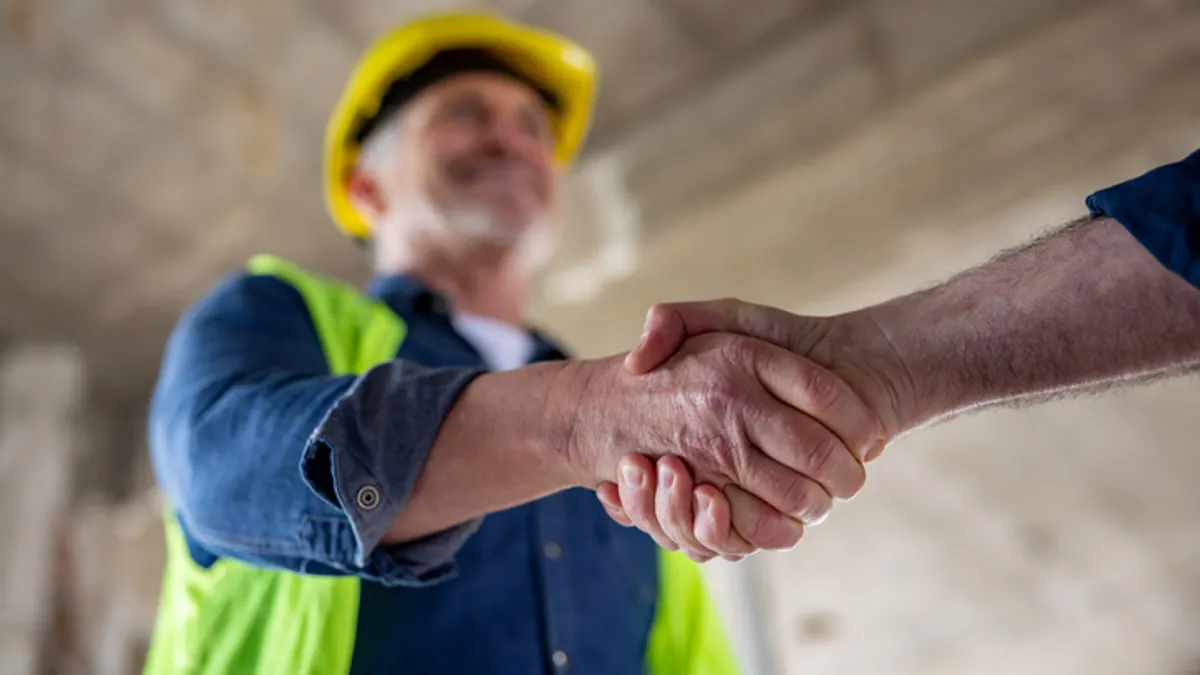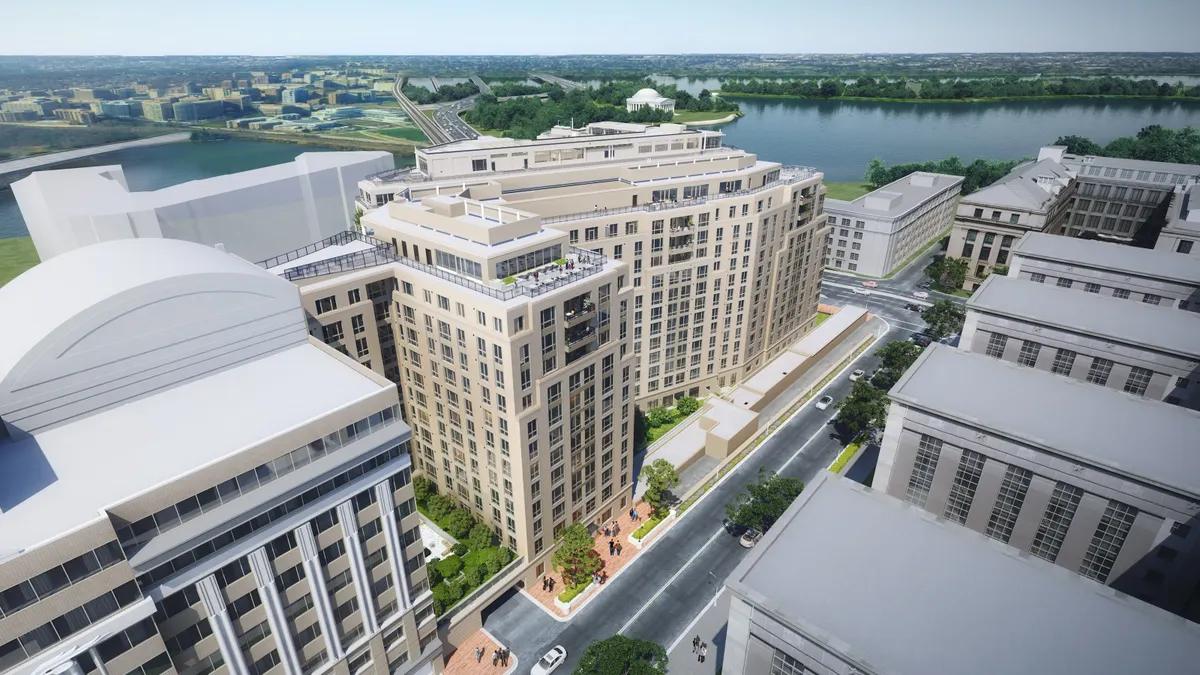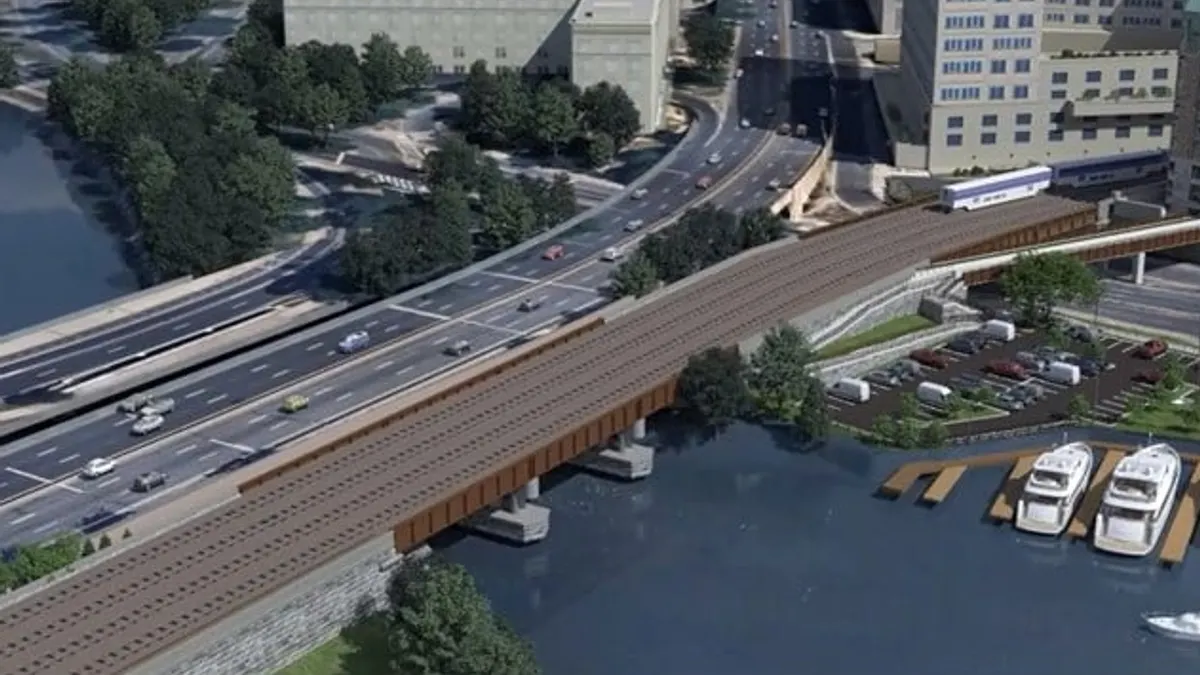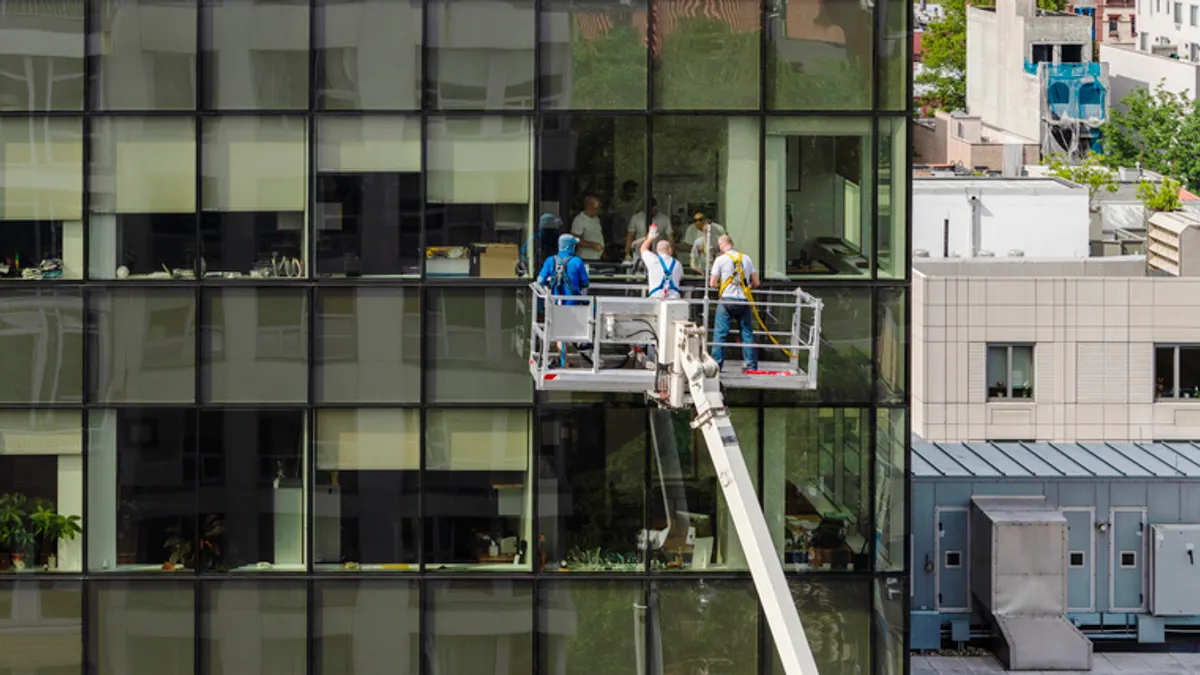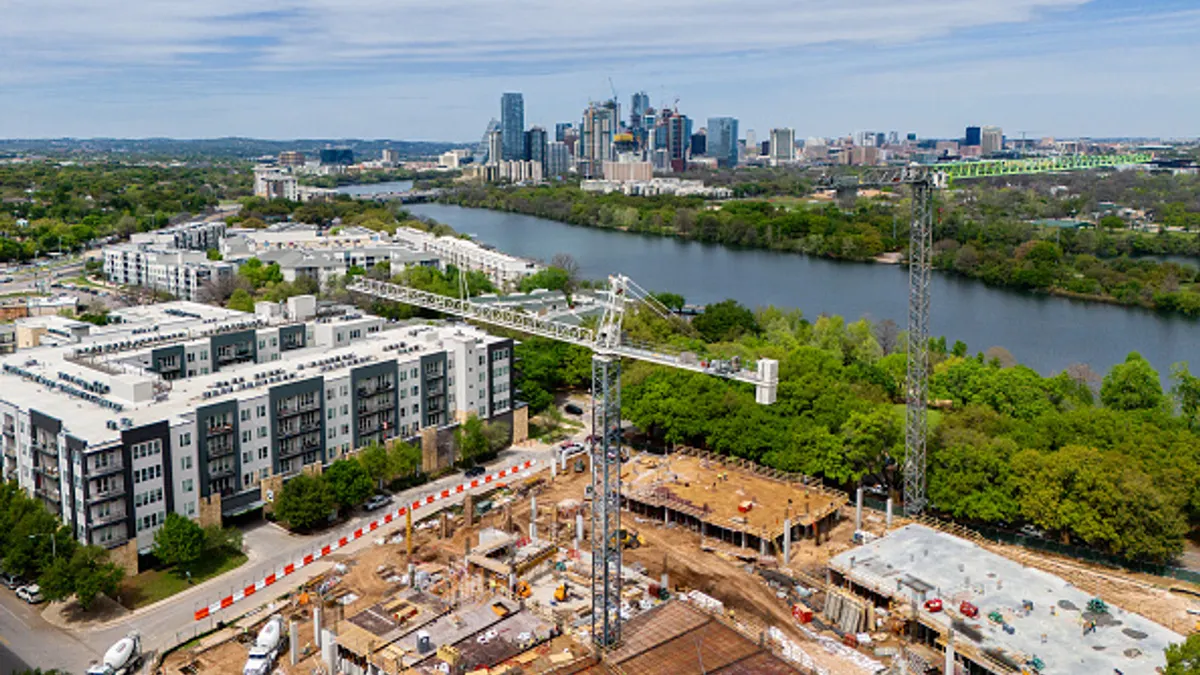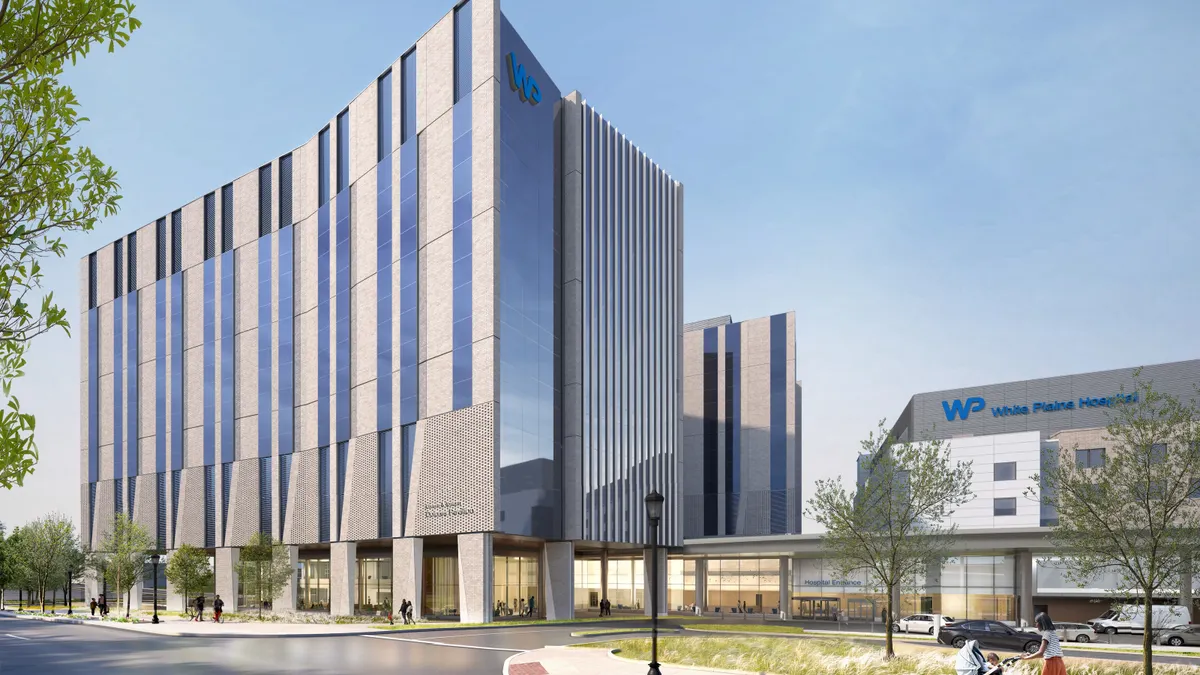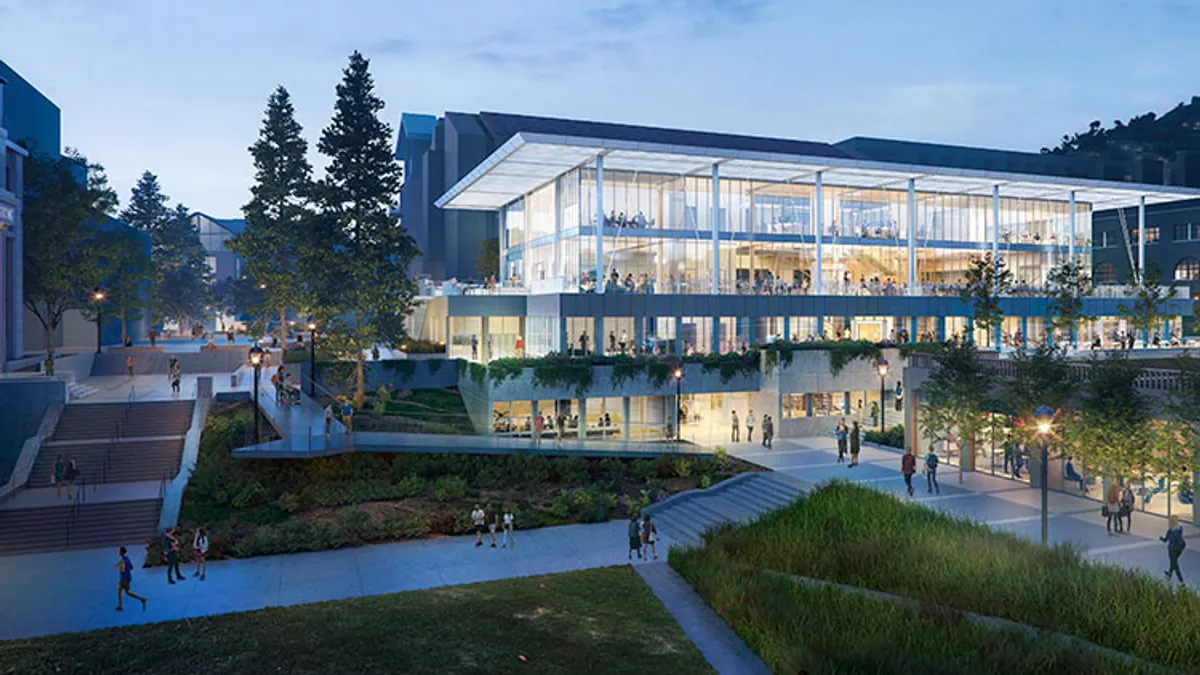This article is part of a series of conversations that Construction Dive reporters and editors are having with industry leaders about the effect that the COVID-19 pandemic is having on their firms and their markets. To add your voice to the discussion, email us here.
As the coronavirus outbreak was just beginning in the United States, leaders at Chicago-based James McHugh Construction Co. were already thinking about how to reboot its offices and its projects.
In mid-March, the company established an office reopening task force that devised a range of new safety practices from temperature check stations and health-reporting phone apps to hands-free valves and modifications to office HVAC systems.
The 123-year-old firm, which has built eight of the 10 tallest concrete structures in Chicago, is also a leader in the hospitality niche. It is building the first hotel on Chicago's Navy Pier for Hilton.
Here, Construction Dive talks with president Michael Meagher (pictured above), who is also president of the board of directors of the Chicagoland Association of General Contractors (CAGC), about overcoming COVID-19 challenges and his vision for the future.
How has the coronavirus affected your firm?
Certainly the concern about coronavirus impacting our industry escalated quicker than anything I’ve seen and once it was here, it was an immediate disruptor. On the positive side, our leadership team acted swiftly and decisively. For nearly two months starting March 23 we held daily 7 a.m. coronavirus calls with our leadership team to assess the situation. While no longer daily, we still hold the calls as a reporting tool.
We also consulted with the CAGC on guidelines for safely operating our jobsites. In fact, the entire industry pulled together. As president of the CAGC, I organized multiple conference calls where colleagues and competitors openly shared their best practices on conducting work during the pandemic.
After our governor deemed construction an essential business, we developed a plan to deliver our services in the safest and healthiest way possible. We implemented staggered start times for work crews, a bus stop-style schedule for construction skips, multiple safety meetings to communicate our new rules for face coverings, limiting the number of people on skips and social distancing.
We have experienced clients who have chosen to “pause” projects because of a fear of the virus spreading and some are waiting to see how the economy reacts before ramping up planned projects. Our field operations never stopped, with rare exceptions when our COVID-19 tracking led us to determine it would be in the best interest of project staff to shut down for 24, 48 or 72 hours. We have daily temperature checks on all construction sites and plans to guide us through every situation, including if a worker tests positive for COVID-19.
How will you keep workers safe going forward?
As we transition to this new “normal,” we have to make sure that we never get complacent or let our guard down. Our project management teams and safety department all understand from the top down how important it is to have our new coronavirus protocols and practices followed. We received multiple compliments from subcontractors that have said they feel like our jobsites are the best to work on because they feel safe.
How will you rethink your operations to stay on budget and on schedule despite social distancing and other new measures?
Nearly every major local contractor is experiencing delays on existing projects because of the pandemic, from adjusting to social distancing to interruptions in the material supply chain. We have to account for this new way of working in our budgeting and scheduling as we move forward on new projects. On existing projects, we are tracking all COVID-19-related project costs.
The best way to rethink our operations is by being transparent with the client and establishing an allowance for these costs. If we do not experience significant delays or added costs related to coronavirus, then the allowance is returned to the client.
What are your biggest concerns as construction begins to reboot?
A second wave and complacency. Both will be handled the same way: sticking to our new rules and policies designed to keep everyone as safe and healthy as possible. My other concerns are economic: How long will the economic contraction last, which markets will be most affected and will subcontractors have enough liquidity to weather a recession? Also, can we hold the pricing at current levels as material and labor costs rise in the reboot?
How does the future look?
Some projects have paused, and the future has a bit of uncertainty, which will mean a tough competitive cycle. But I am hopeful clients will recognize “best-in-class” firms that operate responsibly and are looking to provide the safest and healthiest job site in the U.S.
Our preconstruction team is innovative and will budget projects and make recommendations for systems that we believe may make a client’s product stand out, from bipolar ionization to infrared camera technology for checking the temperatures of a lobby full of people.



